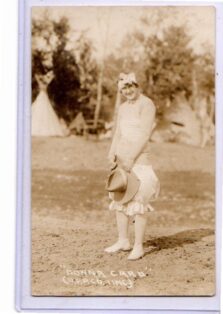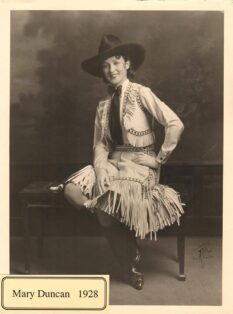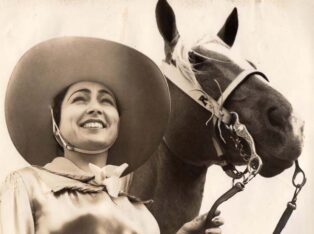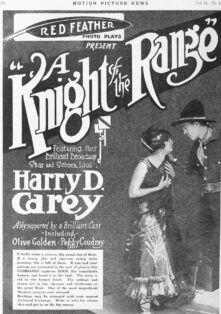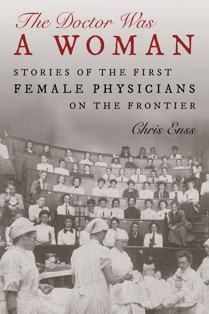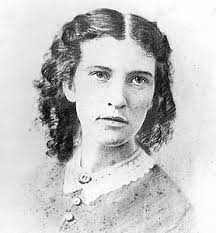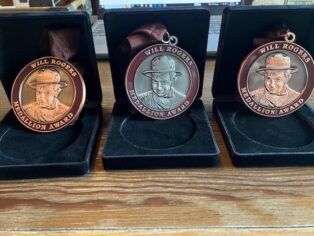Enter now to win a copy of
Along Came a Cowgirl: Daring and Iconic Women of the Rodeo and Wild West Shows
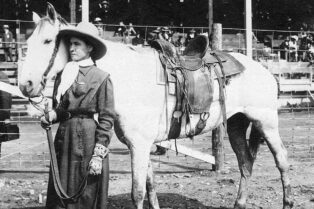
Fashionably dressed bronc rider Bertha Kaepernik picked herself up from the dust and mud of the rodeo arena in Cheyenne, Wyoming, in August 1904, and wiped the dirt out of her eyes. She had just been thrown from a big gray horse, a bucker of the worst type. “Why of course I’m going to ride him again,” she told the rodeo officials. The charming and resilient cowgirl from Sterling, Colorado, was determined to show the crowd that the hard fall she had just received was merely a slight incident in the life of a woman who wanted to make a name for herself busting outlaw horses.
The big gray was brought back after a long chase down the arena, and Bertha once more swung into the saddle. Spurs were sunk, and the quirt was brought down on the animal’s flanks; however he was tired of the routine and merely stampeded, much to the disgust of the daring rider.
Urging her horse back to the judge’s stand, Bertha called for another horse. A little roan containing the combined elevating power of a volcano and a charge of dynamite was brought out and duly saddled after a hard fight in which the animal tried to kill the horse wrangler by striking the man down with iron shod hooves. The roan’s cantankerous attitude didn’t seem to faze her. She was ready for whatever was to come.
Grasping the saddle horn with one hand and deftly inserting one foot in the stirrup and then swinging into the saddle with a nicety that left her well balanced for any jump the horse might make, Bertha was away on her rough voyage. The roan proved to be a better bucker than the big gray that had thrown her. He pitched and flipped and changed ends, but Bertha was in the saddle to stay. She rode upright until the horse fairly wore himself out.
Born in Cleveland, Ohio, in 1883, Bertha Kaepernik made history in 1904 by becoming the first woman to ride a bucking horse at Cheyenne Frontier Days. She would go on to win the bucking championship at the Pendleton Roundup in Oregon in 1911, 1912, and 1914.
Not only was Bertha an accomplished bronco buster, but she also established the world record for the Roman race, making a quarter mile in eight seconds at Pendleton. She also set a record for a female Roman rider at the Washington Rodeo in Walla Walla.
In 1909 she married Dell Blancett, a trick rider for the Bison Moving Picture Company. He was killed in action during World War I.
In addition to competing in rodeos, she was a stunt woman working on some of the first Western films which starred Tom Mix and Hoot Gibson. She traveled extensively across the United States and Europe while working for Pawnee Bill’s Wild West show and the 101 Ranch Wild West show. When her career in rodeos and motion pictures ended, she became a guide at Yosemite National Park. She died at the age of ninety-five on July 3, 1979.
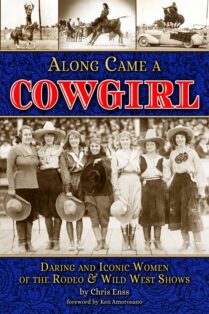
To learn more about fearless women like Bertha read
Along Came a Cowgirl: Daring and Iconic Women of the Rodeo and Wild West Shows

